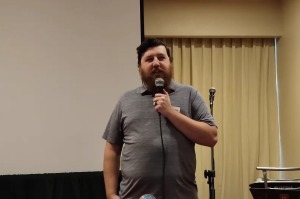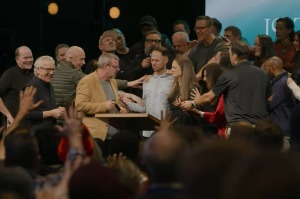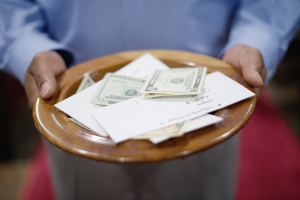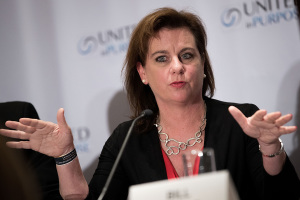'Not a fringe issue': Pastors discuss how pro-lifers, churches can reach pregnant women in need
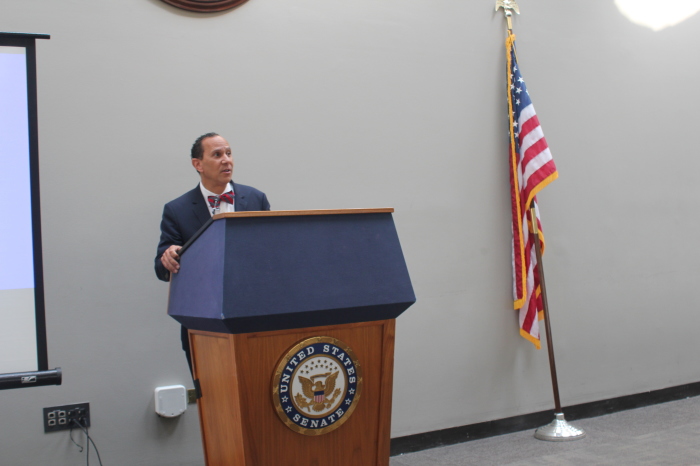
WASHINGTON — Congressional and religious leaders gathered on Capitol Hill Tuesday to discuss how the pro-life movement can reach minority communities on the abortion issue and the duties that faith communities have toward pregnant women and their families.
Human Coalition, a national pro-life collective that helps connect abortion-minded women to life-affirming resources, hosted the event at the Hart Senate Office Building.
The speakers at the event included Rev. Dean Nelson, vice president of government relations for Human Coalition; Senate Pro-Life Caucus Chair Sen. Cindy Hyde-Smith, R-Miss.; Bishop Vincent Mathews of the Church of God in Christ (COGIC) and Bishop Ronnie Crudup of the Fellowship of International Churches (FIC).
Hyde-Smith highlighted Mississippi's 15-week abortion ban, authored by her friend, State. Rep. Becky Currie, the bill that made its way to the U.S. Supreme Court and ultimately resulted in the reversal of Roe v. Wade in June 2022, giving states the ability once again to enact abortion restrictions.
The Senate Pro-Life Caucus chair emphasized that the pro-life movement has a responsibility now to offer resources to pregnant women, calling on pro-lifers to be the group that says to each woman: "Let us help you. Let us walk you through this."
"God doesn't make any mistakes," Hyde-Smith said. "Every human life is so special; He doesn't make those mistakes. And we need to make sure that we're the hands and feet of God."
Pastor Mathews of the Tabernacle Church Of God In Christ in Southaven, Mississippi, urged local churches to "protect life from womb to tomb," citing concerns not only about abortion but also infant and maternal mortality rates.
The bishop said that his church plans to establish a birthing center to offer midwife services to women. He thanked Human Coalition, which COGIC has worked with since 2015, for helping the church provide care.
"This is not a fringe issue," the bishop said about abortion. "This is not a conservative issue. This is a basic fundamental human right that we're talking about."
In an interview with The Christian Post, Mathews said that the church plans to open its birthing center by the end of the year and is committed to serving women and families, including through baby showers and providing free diapers to moms in need regardless of their marital or financial situation.
"We celebrate the babies," he said. "That's what we do."
Mathews thinks the Church needs to be "a positive place where the love of Christ can reflect in, and all of this demonic negativity in this world, we can be a bright shining light."
Regarding how the pro-life movement can reach the black community on the issue, the bishop urged people to continue telling the public "the truth."
"We've got to hit them straight in the face that it is genocide," Mathews said. "You're killing a person; it's a person inside of the woman's body. I think we should keep that issue upfront."
Bishop Crudup, a pastor and Democrat serving in the Mississippi House of Representatives, stated during his speech that FIC knows it has been "on the right side of this [abortion] fight."
With Roe's reversal, Crudup believes that people must be more vocal on the issue, and he specifically called on faith leaders to "stand for life."
"For particularly rural places — not the big metropolitan places — we want people to know that there are people out there that are tremendously concerned, who believe in this issue, want us, particularly those of us who are leaders, to take a stand about these things because that's part of what makes America great."
Nelson touched on the concerns pro-life advocates have that abortion perpetuates racial disparities and condones eugenics, highlighting the controversy over Planned Parenthood founder Margaret Sanger's remarks on the black population.
In 2021, Planned Parenthood President Alexis McGill Johnson declared in a New York Times op-ed that the organization must "reckon" with its founder's ties to white supremacist and eugenic groups; however, some pro-lifers felt the promise was insincere.
Speaking with CP, Nelson said he thinks that pro-lifers can appeal to the black community, and one way to do that involves "strategically engaging" people of color. The pro-life advocate noted that some organizations have started to do this by hiring black people to speak on the issue, but he added that more work needs to be done."
"I think we need to do more listening," he said, referencing a shortfilm shown after the speakers' remarks depicting the story of a woman who initially sought to have an abortion but gave birth to her son instead.
"I think sometimes we come into it with a strategy — traditional pro-life movement, whether it's Catholic or Evangelical — not that it's bad, but it's one strategy. But there might be multiple strategies that can be applied to win this war."
Nelson stressed that the collective must "elevate" the Church's involvement. He highlighted Human Coalition's partnership with groups such as the Douglas Leadership Institute, which engages with and equips thousands of pastors, including minority leaders, to speak on abortion.
Nelson said that some pastors feel "ill-equipped," as they may understand the biblical arguments but not the scientific ones, or they may lack knowledge of relevant legislation. Nelson stressed that Human Coalition wants spiritual leaders to feel prepared when discussing the issue.
Samantha Kamman is a reporter for The Christian Post. She can be reached at: samantha.kamman@christianpost.com. Follow her on Twitter: @Samantha_Kamman
















